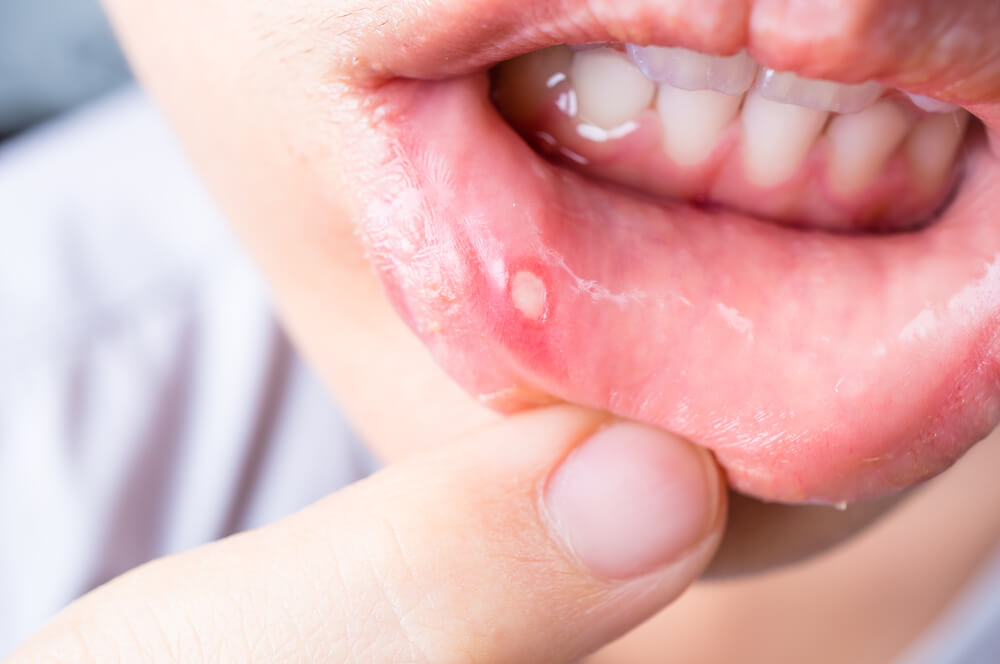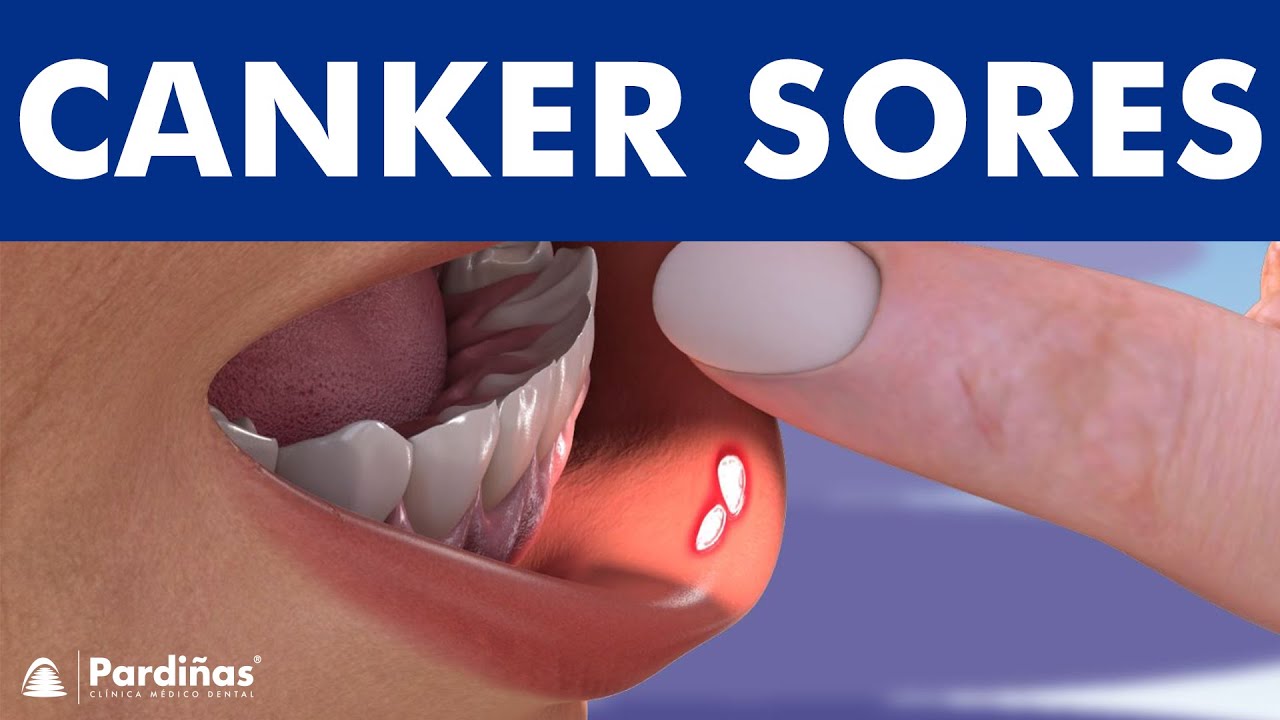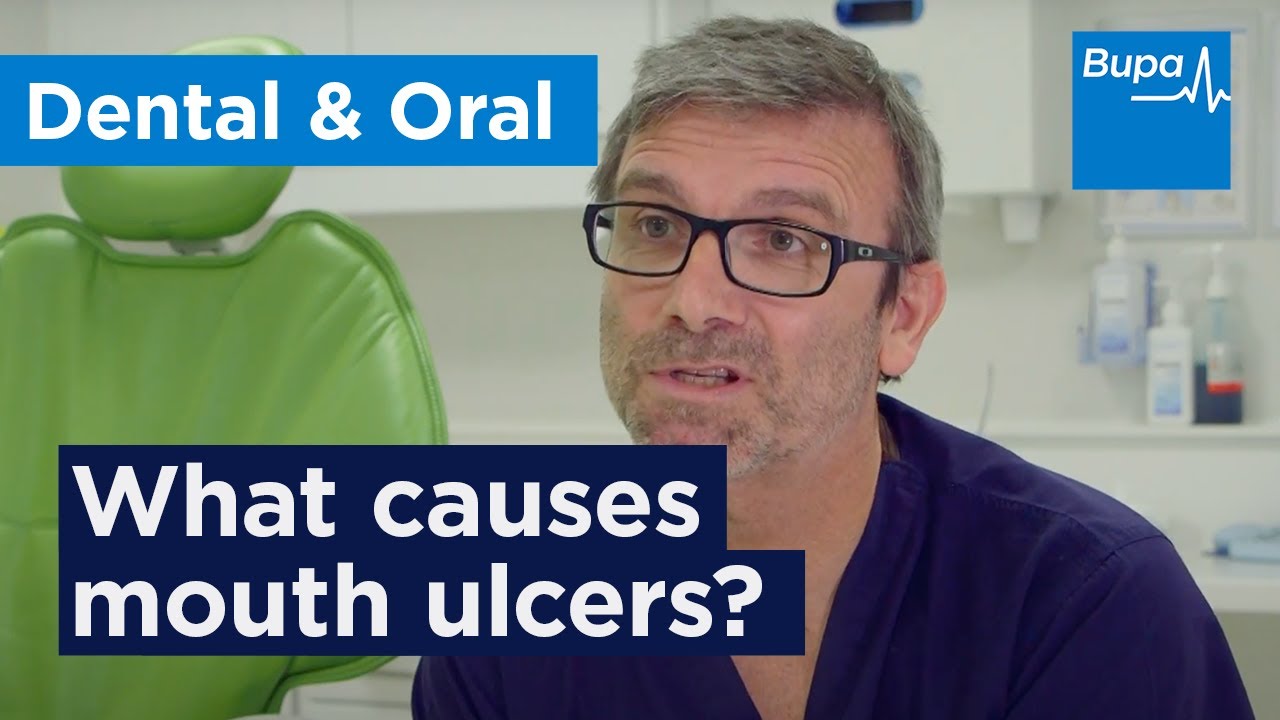Treatment For Mouth Ulcers - How To Get Rid Of Mouth Ulcers Easily
Small sores called mouth ulcers can develop on your lips, inner cheeks, gums, or palate. Although they are not contagious and fade away on their own, the treatment for mouth ulcers can aid in reducing pain and discomfort.
Author:Daniel JamesReviewer:Karan EmeryJan 24, 20231.1K Shares234.2K Views

Small sores called mouth ulcers can develop on your lips, inner cheeks, gums, or palate.
Numerous things, such as minor wounds, hormone fluctuations, and emotional stress, can cause them.
Although they are not contagious and fade away on their own, the treatment for mouth ulcerscan aid in reducing pain and discomfort.
An Overview Of Mouth Ulcer
Mouth ulcers, sometimes called sores in the mouth, canker sores, or oral ulcers, can appear anywhere in the mouth's lining, including the tongue and the floor of the mouth. On rare occasions, a mouth ulcer might be an indicator of malignancy.
In addition to being uncomfortable and sometimes unpleasant, they can make simple tasks like eating, drinking, brushing, and talking impossible. They're also fairly common.
Ulcers in the mouth are painful because they expose the nerves that run just beneath the surface of the mouth's lining. Thankfully, there is a simple solution for most cases of mouth ulcers.
Ulcers in the mouth are harmless and short-lived sores that heal on their own within a week or two. Ulcers in the mouth that don't heal after three weeks, or that come back frequently, are a cause for concern and should be checked out by a doctor.

CANKER SORE - Treatment and mouth ulcer causes ©
Causes Of Mouth Ulcers
Although the precise reason for the development of mouth ulcers is unknown, researchers have identified a number of risk factors that may play a role in the condition.
Tissue Damage
Injuries to the lining of the mouth are common. A mouth ulcer can develop in response to trauma to the mouth, such as from aggressive cleaning, orthodontic braces, ill-fitting dentures, or biting the interior of the mouth.
Vitamin Deficiencies
Mouth ulcers may also be brought on by a vitamin shortage, specifically one that is lacking in B-12, iron, folate, or zinc.
Infections
Mouth ulcers can be brought on by a variety of infections, including bacterial, viral, and fungal.
Stress-Related Mouth Ulcers
Mouth ulcers brought on by stress usually disappear within a couple of weeks. Resolving stressful situations or learning to relax effectively are both preventative measures. Ulcers of the mouth can also be brought on by hormonal shifts and allergic reactions.
Toothpaste Or Oral Rinses
It is possible that the development of mouth ulcers is facilitated by the use of pastes or rinses that contain sodium lauryl sulfate.
Foods And Drinks
Some foods, such as oranges, lemons, pineapples, strawberries, tomatoes, and others, that are high in acid can cause mouth ulcers.
Disease-Related Mouth Ulcers
Ulcers in the mouth might have serious underlying causes. Herpes, sex-related infections, IBD, leukoplakia, gingivostomatitis, oral cancer, oral thrush, celiac disease, and immunological diseases can all cause ulcers in the mouth.
There may be additional signs of illness in addition to mouth ulcers if they are indeed an indicator of a more serious condition. Most cases of mouth ulcers heal in around two weeks. Non-healing mouth ulcers may be a symptom of a serious medical condition.

What causes mouth ulcers? | Bupa Health
Symptoms Of Mouth Ulcer
Depending on the underlying causes, mouth ulcers may present with a wide range of symptoms, including:
- Sores that hurt and could be yellow, white, or red.
- Sores inside the mouth, like on the tongue, inside the cheeks, or inside the lips.
- Redness near the sores.
- Pain that gets worse when you eat, drink, or speak.
Multiple mouth ulcers can occur simultaneously. Unless an underlying infection such as hand, foot, and mouth disease is present, mouth ulcers are not often communicable.
Twenty percent of the world population has experienced at least one canker sore in their lifetime. Canker sores typically fall into one of three categories:
Minor Canker Sore
Oval or circular ulcers of less than 5 mm in diameter are considered minor canker sores. Scarring is avoided and they heal in 1-2 weeks. Minor canker sores are the most common type of canker sore, affecting about 80% of those who get canker sores.
Major Canker Sore
Larger and more extensive than minor canker sores. Commonly, they'll be bigger than 10 mm. They take weeks or months to recover because of their jagged edges. Scarring may be permanent when major canker sores heal.
Herpetiform Canker Sore
It's common for the tongue to be the site of herpetiform canker sores, which are characterized by their pinprick size, clustered appearance, and herpetiform shape. It's possible for many sores to combine into a single one at times. Herpetiform canker sores are characterized by their jagged borders and typically heal completely within a month.
These sores are dubbed "herpetiform" because they can sometimes mimic herpes blisters. Canker sores that are herpetiform are not often caused by herpes.
Treatment Of Mouth Ulcer
Most cases of mouth ulcers heal on their own within a week or two and therefore do not require treatment. However, medical care can help bring down swelling and alleviate pain. If you have frequent mouth ulcers or if your ulcer prevents you from eating and drinking, this may assist.
Self Care
You can hasten your recovery by doing things like the following:
- Using a pharmacist-recommended protective paste.
- When you brush your teeth, use a soft toothbrush.
- Using a toothpaste without sodium lauryl sulfate, which can cause irritation.
- Until the ulcer has healed, you should abstain from eating or drinking anything that is too hard, spicy, salty, acidic, or hot.
- Drinking cold drinks with a straw.
- Keeping away from things that might be giving you mouth ulcers.

5 Effective Home Remedies For Mouth Ulcers
Pharmacy Medicines
Pharmacies typically stock multiple options for treating mouth sores. Discuss your treatment options with your local pharmacist. Among the available choices are:
- The use of an antimicrobial mouthwash may hasten the ulcer's recovery and protect it from infection. This treatment is not appropriate for children under the age of two. Chlorexidine gluconate, another ingredient, has been shown to discolor teeth, though this effect may wear off after therapy is complete.
- You can get pain relievers in a wide variety of forms, including gargles, lozenges, gels, and sprays. Upon initial use, you may experience some stinging or numbness in your mouth, but this feeling will subside quickly. If you still get burning after using mouthwash, try diluting it with water. No one under the age of 12 should use gel or mouthwash. It's not a good idea to use mouthwash for longer than seven days straight.
- Lozenges containing corticosteroids may help alleviate discomfort and hasten recovery. These are most effective when administered at the first sign of an ulcer, however children under the age of 12 should not take them.
Medicines From The Dentist
In severe cases, a course of higher corticosteroids may be administered to assist reduce pain and swelling and speed up the healing process.
Tablets, mouthwash, paste, and spray forms of corticosteroids are available by prescription, however they should not be used on children younger than 12 years old.
People Also Ask
Which Tablet Is Best For Mouth Ulcer?
Hydrocortisone buccal tablets are small, soft, and sticky so that they adhere to the soft tissue of the mouth and disintegrate slowly to deliver the medication. As a bonus, they help mouth ulcers heal more quickly and with less discomfort. Buccal pills of hydrocortisone require a medical prescription. It's also possible to purchase them from drugstores.
How Do You Get Rid Of A Mouth Ulcer In 24 Hours?
Dexamethasone is an anti-inflammatory medication similar to cortisone. Tetracycline mouthwashes have been demonstrated to relieve pain in as little as 24 hours and shorten healing time by half.
What Is The Home Medicine For Mouth Ulcer?
It is believed that baking soda's ability to neutralize acids and reduce inflammation makes it an effective treatment for canker sores. To use: Mix 1/2 cup of water with 1 teaspoon of baking soda. You should gargle with this solution for 15 to 30 seconds before spitting it out.
Conclusion
Most mouth ulcers heal on their own, and the pain associated with them subsides after a few days. Ointments and solutions are available as treatment for mouth ulcers, and they can reduce discomfort and swelling, but they are usually unnecessary for a full recovery. People should make every effort to lower their levels of stress and worry to forestall such outbreaks.

Daniel James
Author
Daniel James is a distinguished gerontologist, author, and professional coach known for his expertise in health and aging.
With degrees from Georgia Tech and UCLA, including a diploma in gerontology from the University of Boston, Daniel brings over 15 years of experience to his work.
His credentials also include a Professional Coaching Certification, enhancing his credibility in personal development and well-being.
In his free time, Daniel is an avid runner and tennis player, passionate about fitness, wellness, and staying active.
His commitment to improving lives through health education and coaching reflects his passion and dedication in both professional and personal endeavors.

Karan Emery
Reviewer
Karan Emery, an accomplished researcher and leader in health sciences, biotechnology, and pharmaceuticals, brings over two decades of experience to the table. Holding a Ph.D. in Pharmaceutical Sciences from Stanford University, Karan's credentials underscore her authority in the field.
With a track record of groundbreaking research and numerous peer-reviewed publications in prestigious journals, Karan's expertise is widely recognized in the scientific community.
Her writing style is characterized by its clarity and meticulous attention to detail, making complex scientific concepts accessible to a broad audience. Apart from her professional endeavors, Karan enjoys cooking, learning about different cultures and languages, watching documentaries, and visiting historical landmarks.
Committed to advancing knowledge and improving health outcomes, Karan Emery continues to make significant contributions to the fields of health, biotechnology, and pharmaceuticals.
Latest Articles
Popular Articles